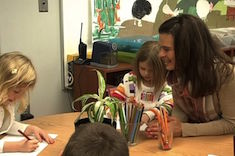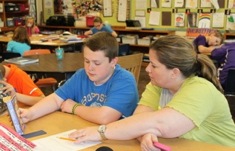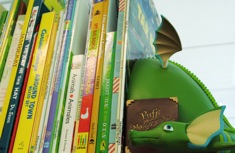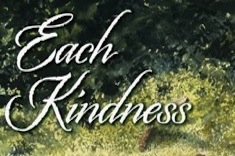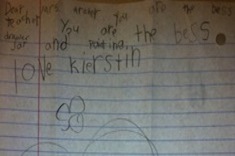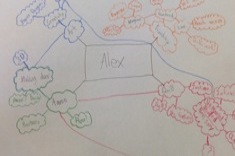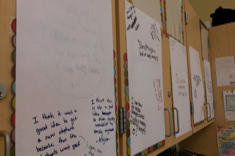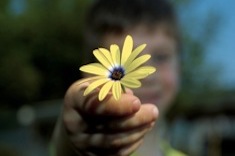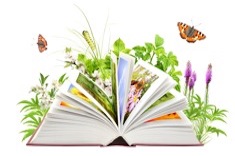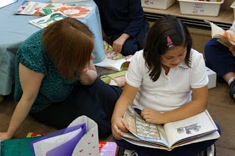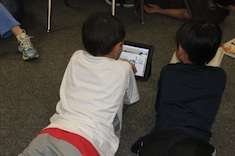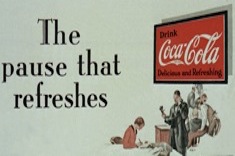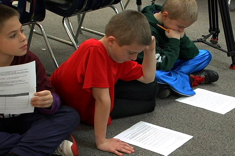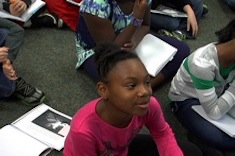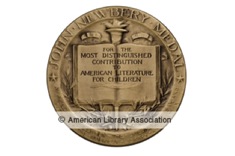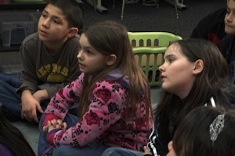Community Building
It's one of the big paradoxes of literacy instruction - students best learn how to read and write independently when they have a strong community of support in classrooms. How teachers build those thoughtful, kind, and challenging classroom communities is explained in these resources.
Latest Content
Launching Writing Workshop: Mentor Texts
Mandy Robek shares her favorite texts for building understanding early in the year of writing workshop with young writers. These books are ideal for launching discussions about how writers find ideas.
Launching Reading Workshop: Mentor Texts
Mandy Robek shares her favorite texts to use early in the year with young students to introduce them to everything from places to read to how to handle books.
The First Days of Reading and Writing Workshops
Katherine Sokolowski explains how she spends her time during the first days of literacy workshops in her fifth-grade classroom.
Using Summer Reading as Bookends for the School Year
Karen Terlecky has advice for using summer reading for launching and closing the school year to build community and enduring connections with students.
30 Books in 30 Days
Justin Stygles uses the 30 Books in 30 Days project to introduce his sixth graders to a wide variety of authors and genres.
Character Through Literature Early in the Year
Katherine Sokolowski finds that the beginning of the year is the best time to build community with a unit on character and morals through literature.
Kindergarten Moments Count: Morning Message
Keri Archer writes about the importance of morning message for kindergartners.
Before and After Pictures: Documenting Progress
Shari Frost finds before and after “snapshots” are a wonderful way to celebrate learning and get closure at the end of the school year.
Habits That Maximize Time
Stella Villalba writes about the importance early in the year of building habits with students that maximize time for English language learners.
Capturing the Elementary Years with Photo Essays
Justin Stygles helps his sixth graders prepare to move to middle school with a photo essay assignment in the last weeks of school.
A Case of the Perennial Annuals
Suzy Kaback remembers saying goodbye to her first group of students as a young teacher.
Love the One(s) You’re With
Gretchen Taylor explains why it’s important to get less “judgy” of the colleagues around us.
Student Work Ethic: Overcoming Spring Fever
Katherine Sokolowski finds the work ethic of her fifth-grade students is flagging by spring, so she helps them reflect upon and improve their performance.
Nonfiction Graffiti Walls
Katie Doherty uses nonfiction graffiti walls as a tool for building response skills and community with her sixth-grade students.
Getting Ready for Summer Reading: A Lesson Cycle
Franki Sibberson designs a lesson cycle to prepare students for summer reading.
The Gifts of Literacy
Kelly Petrin reflects on what she values most in the final days with children in her preschool program, and what she shares with parents.
Reading Through Spring
Gigi McAllister has many suggestions for a strong reading finish to the school year.
End-of-Year Literacy Interviews
Ruth Shagoury explains why year-end interviews are so valuable, and includes questions to use in your interviews.
Remembering to Slow Down at the End of the School Year
Maria Caplin shares her strategies for slowing down at the end of the year with her fifth graders and reflecting on the growth and learning that can't easily be measured with tests.
Connecting Class Social Media in Eight Simple Steps
Colby Sharp shares step-by-step guidance for linking class blogs, Twitter and private Facebook pages when sharing with families. Best of all, you can turn over the task to students.
Character Study Share Session in First Grade
First graders in Katie DiCesare’s class discuss character traits in books from independent reading during a whole-class share session.
A Booklist for Earth Day
Earth Day is celebrated on April 22. Sarah Klim presents some favorite titles to share with students and build awareness in this booklist.
Finding Meaning and Joy in Teaching: A Podcast with Meenoo Rami
In a new podcast, Meenoo Rami talks about ways teachers can bring energy and joy back into their teaching.
Bracketology
Mary Lee Hahn uses bracketology to help her fifth-grade students explore determining importance in short texts and close reading.
The Pause That Refreshes: Write When the Conversation Gets Hot
When’s the best time for some spontaneous opinion writing? Suzy Kaback argues it’s when class conversations get hot.
“Article of the Week” Activity in Fourth Grade
Tony Keefer finds that the article-of-the-week activity (adapted from Kelly Gallagher's work) is a good way to integrate short shared texts into his fourth-grade literacy workshop.
Whole Class Research Planning in 4th Grade
Andrea Smith’s fourth graders brainstorm next steps for their research project on owl habitats, which includes writing a research proposal.
Mock Newbery Club
Katherine Sokolowski has suggestions for organizing and hosting a Mock Newbery Club in the weeks before the award is given in late January.
Dandelions, Chinese, and Patience with Our Youngest Learners
Kelly Petrin meditates on the importance of trust and patience when looking for ways to connect with preschoolers.
Finding a Writing Buddy
Beth Lawson helps her fourth graders sort through what makes peer collaboration work during writing buddy time.
Browse Content By
Type
Category
- Assessment Tools
- Big Fresh Archives
- Booklists
- Choice Numeracy
- Classroom Design
- Common Core
- Community Building
- Conferring
- Content Literacy
- Digital Literacy
- English Language Learners
- Equity
- Family Relations
- Free Samples
- Guiding Groups
- Leadership
- Literacy Coaches
- Mentor Texts
- Minilessons
- New Teacher Mentors
- Podcasts
- Poetry
- Quote Collections
- Reading Strategies
- Self Care
- Struggling and Striving Learners
- Talking and Listening
- Teacher Study Groups
- Teaching Reading
- Teaching Writing
- Word Study and Vocabulary
Author
- Melissa Quimby
- Nawal Qarooni
- Gwen Blumberg
- Julie Cox
- The Lead Learners
- Hannah Tills
- Josie Stewart
- Ruth Metcalfe
- Mallory Messenger
- Becca Burk
- Jodie Bailey
- Vivian Chen
- Mary Brower
- Tiffany Abbott Fuller
- Stephanie Affinito
- Ruth Ayres
- Leigh Anne Eck
- Heather Fisher
- Shari Frost
- Julie Johnson
- Suzy Kaback
- Gigi McAllister
- Shirl McPhillips
- Melanie Meehan
- Cathy Mere
- Debbie Miller
- Tara Barnett and Kate Mills
- Tammy Mulligan
- Dana Murphy
- Bitsy Parks
- David Pittman
- Brenda Power
- Heather Rader
- Matt Renwick
- Mandy Robek
- Christy Rush-Levine
- Gretchen Schroeder
- Jen Schwanke
- Brian Sepe
- Katherine Sokolowski
- Stella Villalba
- Jennifer Vincent
Grade Level
Choice Literacy Membership
Articles
Get full access to all Choice Literacy article content
Videos
Get full access to all Choice Literacy video content
Courses
Access Choice Literacy course curriculum and training

